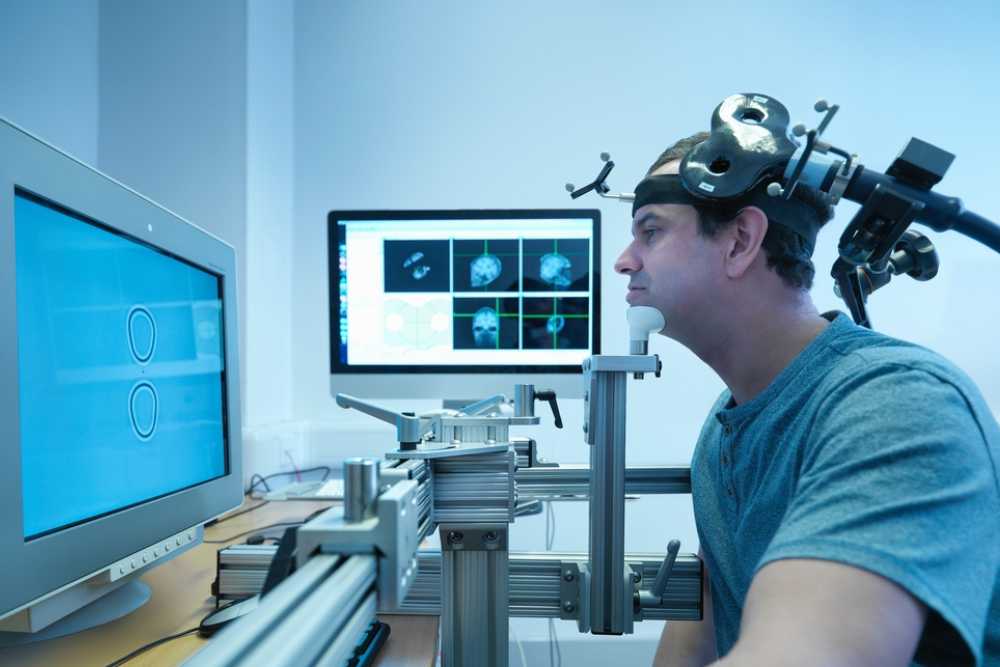Research on Transcranial Magnetic Stimulation (TMS) therapy for Borderline Personality Disorder (BPD) is still emerging, but early findings show promise. The research reports for TMS and BPD suggest it could be a potential treatment option, with several studies reporting encouraging preliminary results. Specifically, repetitive TMS (rTMS) targeting the dorsolateral prefrontal cortex has shown benefits for core BPD symptoms.
BPD is characterized by a severe pattern of instability in emotional regulation, interpersonal relationships, and identity. Some studies have found that TMS for mental health disorders that target the cerebellum can affect impulsivity in BPD patients. Research into treating depression and BPD conditions with TMS shows significant improvements in the symptoms of depression, allowing patients to focus on accepting that their feelings are real and reducing impulsive behaviors.
Repetitive transcranial magnetic stimulation is an innovative method in the treatment of borderline personality disorder, with researchers hypothesizing that prefrontal rTMS leads to improved BPD symptoms. The research suggests TMS may be a promising adjunctive treatment for BPD, particularly for symptoms like impulsivity, emotional instability, and comorbid depression. However, larger, controlled studies are needed to establish definitive efficacy and optimal treatment protocols before TMS and BPD are considered standard treatments.

Can TMS Therapy Help Treat BPD Symptoms?
Transcranial Magnetic Stimulation therapy shows promising but preliminary results for treating BPD symptoms. Research shows that TMS is effective in reducing anger and impulsive behavior and improving unstable moods, which are core symptoms of borderline personality disorder. The research evidence indicates several key findings:
- Positive outcomes observed: Both protocols produced global improvement in severity and symptoms of BPD, particularly in impulsiveness, affective instability, and anger. Studies have shown that TMS can help with emotional regulation difficulties, impulsivity, and mood instability that characterize BPD.
- Current research limitations: However, the evidence is still emerging. Double-blind randomized controlled studies are necessary to help elucidate the effects of rTMS on the different symptoms in BPD and establish efficacy and the best cortical targets and stimulation protocols. Most studies have involved small sample sizes, and future controlled studies involving larger samples and optimal stimulus parameters should be designed to confirm the short-term and long-term safety and efficacy.
- Safety profile: The research suggests that rTMS is a well-tolerated treatment in patients with BPD, which is encouraging for its potential therapeutic use.
- Comorbid depression: Since many people with BPD also experience depression, Transcranial Magnetic Stimulation treatment in California may provide additional benefits by addressing both conditions simultaneously, as it’s already an established treatment for depression.
While the initial results are encouraging, TMS for BPD is still considered experimental. More rigorous clinical trials are needed before it can be viewed as a standard treatment.
Which BPD Symptoms Might Improve with TMS Therapy?
Based on the current research, TMS therapy appears to target several specific BPD symptoms:
- Impulsivity and anger control: These appear to be the most responsive symptoms to TMS. Research shows that TMS is effective in reducing anger and impulsive behavior, with both protocols producing improvement, particularly in impulsiveness and anger.
- Emotional instability: Studies show improvement in affective instability, which refers to the rapid mood swings and emotional volatility that characterize BPD. TMS helps with improving unstable moods.
- Overall symptom severity: Research indicates global improvement in severity and symptoms of BPD, suggesting broader therapeutic effects beyond just specific symptoms.
- Symptoms likely to benefit based on depression research: Since TMS is well-established for treating depression, and depression commonly co-occurs with BPD, you might also see improvements in depressed mood, sleep disturbances, concentration difficulties, and feelings of emptiness.
- Symptoms with less clear evidence: The research is less clear on whether TMS significantly helps with other core BPD symptoms like fear of abandonment, identity disturbance, chronic feelings of emptiness, dissociative symptoms, self-harm behaviors, and unstable relationships.
The improvements indicated in the research have been primarily in emotional regulation and behavioral control rather than the interpersonal or identity-related aspects of BPD.
Mental Health Treatment That Works
Call 949-625-0564What our customers are saying
Is TMS Therapy Safe for People With BPD?
Based on current research, TMS therapy appears to have a good safety profile for people with BPD, though specific BPD-related safety data is still limited.
- General Safety for BPD: TMS is described as having “no medication and very few side effects” when used for BPD. Previous research suggests that rTMS is a well-tolerated treatment in patients with BPD.
- Overall TMS Safety Profile: The most serious potential risk is seizure, but this is extremely rare. The risk of TMS-related seizures is less than 1% overall, with more specific data showing only a 0.1% risk of experiencing a seizure during a TMS treatment session and an overall seizure rate of 0.31 per 10,000 sessions.
- Common Mild Side Effects: The most likely complications are mild and usually don’t last more than several minutes after a session, including pain, usually in your scalp or neck.
- Medical Contraindications: Those with certain medical implants should avoid TMS therapy for borderline personality disorder. Metal implants or gadgets that interact with magnetic fields can cause complications, including stents, implanted stimulators, and pacemakers. However, braces or dental fillings are completely safe and don’t interfere with TMS therapy near Tustin.
Are There Risks of Using TMS Therapy for BPD Patients?
While TMS therapy shows promise for treating BPD symptoms, several risks require careful consideration for this patient population. The most serious but rare risk is seizure induction, occurring in less than 0.1% of treatment sessions. However, this risk may be elevated in BPD patients who have comorbid conditions such as substance use disorders, head injuries, or eating disorders that can lower seizure thresholds.
People with BPD also frequently have complex medication regimens including mood stabilizers, antipsychotics, or medications that affect seizure risk, requiring thorough medical review before treatment. Also, those with certain medical implants like pacemakers, cochlear implants, or deep-brain stimulators cannot safely receive TMS due to magnetic field interactions, and careful screening is essential since some BPD patients may have medical devices related to suicide attempts or self-harm behaviors.

Key Takeaways on TMS and BPD
- Current research shows TMS can effectively reduce core BPD symptoms like impulsivity, anger, and emotional instability.
- TMS appears most effective for emotional regulation issues, impulsive behaviors, and mood instability rather than interpersonal or identity-related BPD symptoms.
- While TMS has a good overall safety profile with seizure risk under 0.1%, BPD patients may face elevated risks due to common comorbidities like substance use.
- The intensive schedule of daily sessions for 4–6 weeks may be particularly challenging for BPD patients who struggle with consistency and therapeutic relationships.
- Given the experimental nature of TMS for BPD and the potential for symptom destabilization during treatment, this therapy should only be pursued with experienced psychiatric teams who have crisis intervention protocols and comprehensive safety planning in place.
TMS is a non-invasive medical treatment that uses magnetic fields to stimulate specific areas of the brain, which may help alleviate symptoms associated with BPD. The benefits of TMS and BPD are encouraging. If you’re interested in exploring the potential, contact Moment of Clarity at 949-625-0564 today. Our network of outpatient mental health treatment centers in Southern California provides personalized and evidence-based treatments to help patients improve their emotional well-being.
Resources
- ScienceDirect – Borderline personality traits do not influence response to TMS
- National Library of Medicine – Clinical improvement in patients with borderline personality disorder after treatment with repetitive transcranial magnetic stimulation: preliminary results
- National Library of Medicine – Repetitive transcranial magnetic stimulation in patients with borderline personality disorder: A systematic review




